
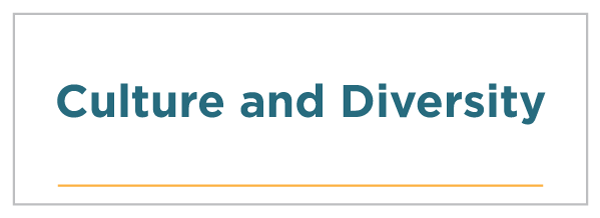 |
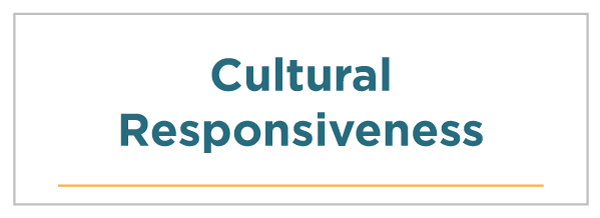 |
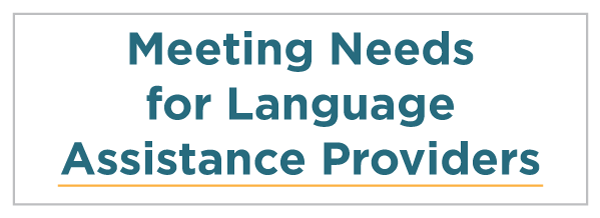 |
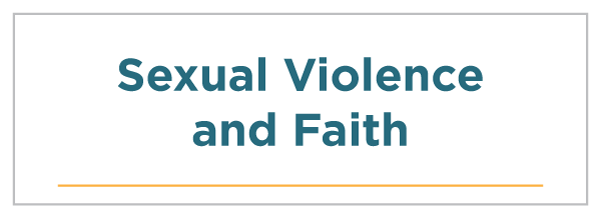 |
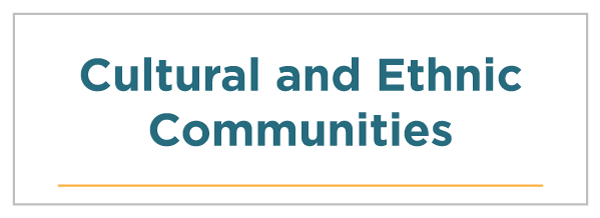 |
 |
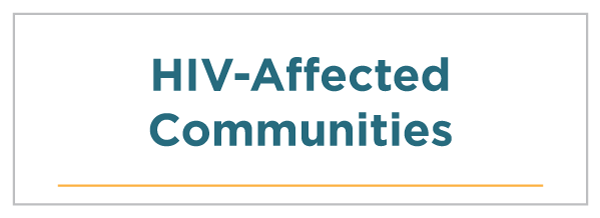 |
 |
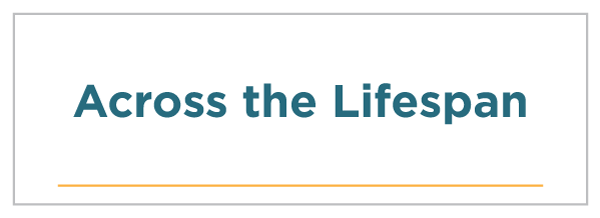 |
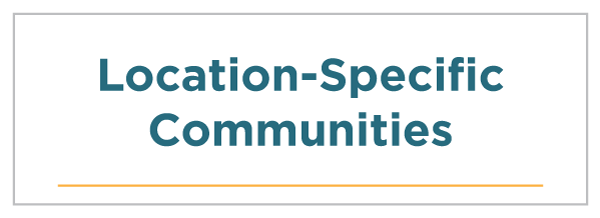 |
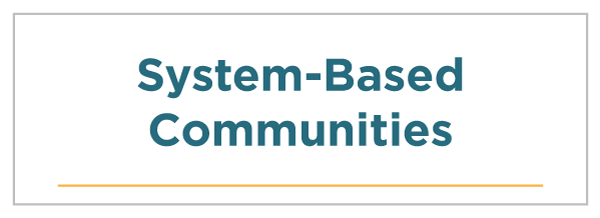 |
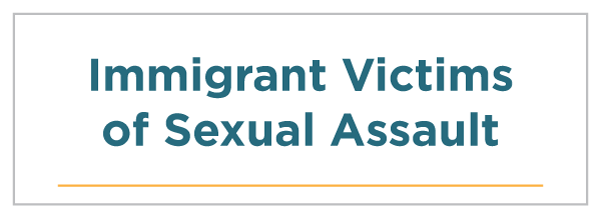 |
Specialized information and training is required of SARTs to serve any victim population. Victims of sexual assault who are immigrants are no different. SARTs that receive specific training and develop protocols and policies on responding to immigrant victims will improve outcomes for sexual assault survivors and better support their ability to participate and seek help from the civil and criminal justice systems. The training will also enhance the ability of SARTs, law enforcement, and prosecutors to detect, investigate, and prosecute perpetrators of sexual assault against immigrants.
SARTs can seek to understand the dynamics of sexual assault experienced by immigrant victims, including the cultural, linguistic, and immigration status-related systemic barriers they encounter when they seek help after being sexually assaulted. The SARTs and Language Access section of the SART Toolkit provides additional information on language access for individuals with limited English proficiency (LEP).
All immigrant victims of sexual assaults perpetrated in the United States are eligible for special immigration protections created to help immigrant crime victims. These crime victim-based forms of immigration relief benefit immigrant victims who are not U.S. citizens or lawful permanent residents, including undocumented immigrants and immigrants with immigration visas.
When SART professionals know about available crime victim-related immigration relief, they can play an extremely important role in early identification and referral of immigrant survivors to advocates, attorneys, and victim witness specialists at law enforcement and prosecution agencies who have expertise helping immigrant victims.
The term “immigrant,” unless otherwise noted, is used as a general term to include documented and undocumented immigrants, refugees and migrants, and others present in the United States on temporary visas, including but not limited to, visitors, students, diplomats, and temporary workers.
The term “undocumented” refers to people living in the United States without permission from the Department of Homeland Security. This unauthorized presence could result from a visa violation or an unlawful entry.
“Documented” immigrants are those who hold valid visas to live in the United States, and include legal permanent residents (“green card” holders). These documented populations, although they are lawfully present in the United States, are often uninformed or misinformed about their legal rights.
Immigrant survivors are eligible to receive certain forms of immigration relief, and SARTs are in a unique position to provide immigrant survivors with the information and support necessary to seek and receive those services. Both documented and undocumented victims of sexual assault and other crimes often qualify for, but are not aware of, the immigration relief that includes a path to lawful permanent residency and ultimately citizenship based upon the immigration provisions of the Violence Against Women Act (VAWA 2000) [395] and the Victims of Trafficking and Violence Protection Act of 2000. [396]
Victims who have support from advocates and attorneys are more likely to file for immigration relief and protection orders. These immigrants are then more willing, long-term, to call police for help and participate in the civil and criminal justice systems. [397] See Legal Protections for Immigrant Sexual Assault Survivors for additional information on immigration relief.
SARTs seeking to ensure survivors’ well-being and safety need to be aware of the services, assistance, and specific limited health care options that are necessary to protect the victim’s life and safety and are available to all immigrant survivors of sexual assault regardless of their immigration status.
See Immigrant Sexual Assault Victim Access to State and Federal Public Benefits for more information on the services a survivor might be eligible to receive based on the form of immigration relief the victim files for, the state in which the victim resides, the state in which the crime occurred, and when the immigrant victim entered the United States.
SARTs should also be aware of key issues that arise in family court cases involving immigrant victims and victims with LEP. The Custody and Divorce Cases Involving Immigrant Victims section of the SART Toolkit discusses this in more depth.
Over the past 27 years, the number of immigrants from linguistically and culturally diverse backgrounds living in the United States has steadily increased. Immigrants have moved beyond traditional gateway states (traditionally including California, Florida, Illinois, New Jersey, New York, and Texas), [398] settling in both urban and rural communities across the country, particularly in the Southeast, Pacific Northwest, Mountain States, and Sun Belt. [399] The U.S. immigrant population rose by 11.6% between 2000 and 2016. [400]
As of 2016 —
As a result of increasing immigrant populations, more SART programs, law enforcement agencies, prosecutors’ offices, victim advocates, and attorney constituents are immigrants from diverse countries and cultures. Agencies that worked with a limited number or no immigrant victims of crime might be in a position to seek more immigrant victims to serve. [405]
Increasingly, SARTs will encounter immigrant victims of sexual assault who will come from many different cultural, linguistic, and religious backgrounds. The assumptions and expectations people have about the justice system are influenced by experiences in their home countries. Most live in homes where family members have a range of differing citizenship and immigration statuses. [406] Known as mixed-status families, these are families in which one or more family member is an undocumented immigrant and other family members are citizens, lawful permanent residents, or immigrants with another form of temporary legal immigration status. [407]
The varying immigration statuses and the cultural dynamics in immigrant families play a role in immigrant sexual assault survivors’ decision-making related to safety, help-seeking, and reporting. Learning about the legal, health care, benefits, and social services legally available to survivors of sexual assault in the United States can encourage immigrant survivors to overcome the family and cultural barriers that otherwise deter them from seeking help.
Immigrant survivors of sexual assault are frequently unaware of, have incorrect information about, or encounter difficulties when they try to access services that, as a matter of law, are available to help them. In part, this is because too often the professionals to whom immigrant victims turn for help (health care, social, and legal services providers, and government agency staff) are not aware of and do not know where to access legally correct information about the full range of options legally available to immigrant sexual assault survivors. [408] At the same time, the organizations, programs, and government institutions serving immigrant communities often lack training, experience, or expertise in serving victims of sexual assault.
Having accurate information available to immigrant victims of sexual assault is a critical component of SARTs’ readiness to provide sexual assault services to all victims.
Immigrants may be particularly vulnerable to sexual assault. Being an immigrant also confers significant increased vulnerability to recurring sexual assault. [409] Immigrants are particularly at risk of sexual assault because of, among other things, their lack of familiarity with their legal rights, misinformation they may have about the U.S. legal system, [410] lack of access to service providers, and language barrier issues.
Immigrant victims of sexual violence often confront two burdens: (1) the trauma of the sexual violence they experienced; and (2) legal, economic, community, and other significant pressures that are related to, or arise from, their status as immigrant victims. [411]
The pressures immigrant victims face may include the challenges and fears associated with becoming accustomed to a new culture, overcoming language barriers, and struggling with uncertainty about their rights as victims and as immigrants. An assault may also trigger memories of prior victimization or dislocation, whether in the U.S. or in the immigrant’s home country. [412]
To counter these fears, it is important for SART members to know about the range of assistance legally available to help all immigrant victims of sexual assault in the United States, without regard to the victim’s immigration status. [413] It is also important to use tools to screen for and inform immigrant victims who qualify for the forms of immigration relief that have been designed to offer help and protection to them.
While the majority of all sexual assaults are not reported to law enforcement, [414] immigrant victims’ willingness to report is further impeded by multiple factors that are not present or do not play as significant a role for non-immigrant victims. These factors include —
Immigrant girls and women, particularly those with undocumented or temporary immigration status, are often afraid to report crime victimization to law enforcement officials out of fear that such reports will lead to deportation. [417] Social vulnerability may arise out of fears about the impact disclosure about sexual activity may have on their relationships in their cultural community or with their family members. [418]
Immigrants’ sexual assault victimization that occurs within families, perpetrated by a parent, step-parent, spouse, intimate partner, child, or other family member, is covered by state domestic violence, child abuse, and sexual assault laws. Approximately two-thirds of all rapes and sexual assaults in the U.S. are committed by someone the victim knows. [419] Of these assaults, 30% are committed by family members or intimate partners (11% by fathers or step-fathers, 10% by boyfriends or ex-boyfriends, and 9% by husbands or ex-husbands). [420]
The vulnerability of immigrant girls to sexual assault is enhanced by the process of immigration and the subsequent breakup and reformation of families and new extended family units. [421] Immigrant women experience domestic and sexual violence in marriages and intimate partner relationships at higher rates than U.S.-born women. [422] Using Violence Against Women Act (VAWA) self-petitioning, Congress found that “Domestic battery problems can be terribly exacerbated in marriages where one spouse is not a citizen, and the non-citizen’s legal status depends on his or her marriage to the abuser.” [423]
Immigrant victims of intimate partner violence may be victims of both physical and sexual violence perpetrated by their intimate partners. Immigration-related abuse, power, and coercive control play a key role that results in victims having less access to resources, staying in abusive relationships longer, enduring longer durations of abuse, and sustaining more severe physical and emotional consequences than other battered women in the United States. [424]
Additionally, abuse rates are highest when the battered immigrant’s abuser is their U.S. citizen spouse. [425] In communities where immigration enforcement activities are on the rise, victims’ fear of deportation makes abusers’ threats to turn victims in for immigration enforcement a more potent weapon, resulting in a dramatic drop in the willingness of battered immigrant spouses to seek help. [426]
Although some individuals who have been sexually assaulted by their partners have also been battered by them, it is important not to categorize intimate partner sexual assault as simply another form of domestic violence. The trauma faced by sexual assault victims is unique, as are their resulting needs, and service providers must address these issues specifically. LGBTQ immigrants, for instance, and transgender immigrants in particular, are at greater risk of harassment and abuse in immigration detention, and are frequently not housed in the section of their preferred gender identity. [427]
Too often, when the history of domestic violence is clear, service providers avoid learning about or addressing the sexual assault also occurring in the relationship. Avoiding addressing sexual assault and the victim’s trauma that stems from the sexual assault by treating domestic violence and sexual assault as the same is a great disservice to these victims. [428] Improper identification of the crime(s) could lead to incomplete service provision for the victims, incomplete investigations, uninformed charging decisions, and underinformed prosecution efforts.
Immigrants are also more susceptible to sexual assault in the workplace. For instance, within the U.S., farmworkers, [429] workers in the meat-packing and food-processing industries, [430] domestic workers, [431] and janitors working the night shift [432] all work in a world rife with sexual violence. Perpetrators of sexual assault view farmworkers and other undocumented individuals as “perfect victims” because they are isolated due to language and cultural barriers, generally do not know their rights, and may be vulnerable because they lack legal status. [433] Perpetrators of sexual violence — including employers, supervisors, co-workers, co-habitants, and housing providers — frequently use these fears and conditions to exert power and control over their victims.
Sexual assault victimization of immigrants may also be perpetrated by teachers, students, health care providers, clergy, or caregivers. Immigrant girls are twice as likely as U.S.-born girls to have suffered sexual assault by the time they reach high school. [434] Some of these crimes may fall under the legal definition of sexual assault, domestic violence, or human trafficking under state laws. SART members should be aware that some victims who are legally present in the United States may have immigration-related fears and vulnerabilities. For example, a victim who is in the United States on a work or student visa may face loss of immigration status if they quit their job or school because of an assault, or take an extended leave of absence. [435]
The absence of a support network for immigrant survivors of sexual assault, especially those who are newly arrived in the U.S., significantly affects immigrant victims’ abilities to access timely medical, law enforcement, legal, and mental health assistance. By engaging with immigrant victims’ advocates, attorneys, and immigrant community-based organizations, SARTs can build collaborative relationships with programs that victims in immigrant communities trust.
Experts in serving immigrant survivors can train and help improve SART members’ understanding of the legal rights and options for immigrant survivors and the cultural, linguistic, and immigration-related dynamics of sexual and domestic violence perpetrated against immigrants. Equally important are SART members who work in and with law enforcement and prosecution agencies and have a deep understanding and expertise helping sexual assault survivors gain access to justice and services. Immigrant victims benefit from advocacy support and assistance from justice system professionals who sign U and T visa certifications and facilitate greater immigrant victim participation in the civil and criminal justice system. [436]
These collaborations improve victim and community safety, and they increase the number of immigrant survivors who turn to the civil and criminal justice systems for help and who seek services, health care, and counseling needed to heal. [437]
When conducting forensic examinations in cases where survivors are immigrants or have limited English proficiency (LEP), it is important to be sensitive and open to cultural preferences. SART nurses should avoid the re-traumatization of immigrant sexual assault victims during evidence collection. The Sexual Assault Response Team SART Handbook from Oregon emphasizes the importance of training on cultural and religious factors that can impact immigrant or LEP victims’ understanding of and willingness to participate in the forensic examination. SARTs need to prepare to discuss the exam in a culturally relevant manner that recognizes how the victim’s cultural community may view the exam. [438]
In some cultures, for example, the gynecological exam may be seen as an exam that only married women should participate in. Likewise, the forensic exam may be the first vaginal exam the victim has had, adding to the victim’s trauma and conflict about whether to agree to participate in the exam. It is important to know how culture may impact a victim’s willingness to take the exam and how having the exam can help support a victim’s U or T visa application. This information can also help immigrant survivors make informed choices about whether to participate in the forensic exam.
For more information and examples, see the Cultural Responsiveness section of the SART Toolkit.
In cases of immigrant survivors, the trauma of the recent sexual assault may trigger memories of traumatic experiences that took place in the victim’s home country [439] or during their immigration to the United States. When this is the case, sexual assault forensic examiners (SAFEs) can provide compassion and cultural sensitivity to immigrant victims of sexual assault. A well-trained SAFE will understand different elements of shame and denial associated with the victim’s experience. SART members, nurses, police, and prosecutors may find tools at NIWCP’s library, developed to assist immigration and family lawyers in learning more about an immigrant victim’s trauma history.
To best serve immigrant and LEP survivors, SARTs should—
Law enforcement and prosecutors’ offices should implement U and T visa certification practices [446] and policies. The 2017 Model Policy for Interactions with Immigrant Victims of Crime and Human Trafficking & Signing of U Visa Certifications and T Visa Declarations is a key resource for SARTs. It is important to note that under federal regulations on the U visa, agencies can certify U visa cases whether or not they have implemented a formal U visa certification policy. U visa certification is an important community policing tool for law enforcement agencies. [447]
Both law enforcement agencies and prosecutors’ offices should identify formal points of contact with immigrant victim’s advocates and attorneys. These formal points of contact should be codified with memorandums of understanding, in protocol, or in policy with a plan for turnover in any position. They should also develop strong working relationships with victim advocacy and legal services agencies with expertise on immigrant victims’ legal rights and options to work collaboratively on cases, and partner on resolving access to justice barriers in the community and the state.
Prosecutors’ offices should receive training and use training materials on best practices, some of which can be found at NIWCP’s library, for criminal prosecutions involving immigrant sexual assault victims.
Law enforcement agencies and prosecutors’ offices should adopt, implement, and update language access plans that assist them in criminal investigations and prosecutions involving immigrant and LEP survivors. [448]
Your SART should partner with law enforcement agencies and prosecutors’ offices in your jurisdiction and your state to bring training on U and T visa certification and best practices for law enforcement and prosecutors in criminal investigations and prosecutions of cases involving immigrant sexual and domestic violence survivors.
It is helpful to use toolkits, online and telephonic virtual training opportunities, and other resources to help law enforcement officials and prosecutors bring more offenders to justice, help victims, and improve community safety.
Advocate’s and Attorney’s Tool for Developing a Survivor’s Story: Trauma Informed Approach (PDF, 8 pages)
This resource from National Immigrant Women’s Advocacy Project (NIWAP) provides guidance on how people working with survivors can collect their stories.
Certifying Early: When Should You Sign a U or T Visa Certification for a Victim? (PDF, 4 pages)
This resource from NIWAP provides guidance on when victims can receive certification for a U or T visa.
Quick Reference Guide for Prosecutors: U Visa and VAWA Confidentiality Related Case Law (PDF, 2 pages)
This tool from NIWAP can help prosecutors when defense counsel attempts to discover VAWA confidentiality protected information.
Trauma Informed — Structured Interview Questionnaires for Immigration Cases (SIQI) (PDF, 31 pages)
This resource from NIWAP was developed by drawing upon evidence-based research on violence against women, coercive control, trauma, and acculturation.
VAWA Confidentiality and Criminal Cases: How Prosecutors Should Respond to Discovery Attempts for Protected Information (PDF, 9 pages)
This resource by NIWAP explains how prosecutors can ensure VAWA confidentiality.
VAWA Confidentiality: Statutes, Legislative History, and Implementing Policy (PDF, 25 pages)
In this resource, NIWAP provides background information on VAWA confidentiality protections.
What’s Immigration Status Got to Do with It? Prosecution Strategies for Cases Involving Undocumented Victims (PDF, 7 pages)
This resource from NIWAP explains the role of immigration status in criminal cases.
National Immigrant Women’s Advocacy Project
NIWAP offers technical assistance to law enforcement and prosecutors through virtual roundtables and webinars. SART members can invite state and local law enforcement and prosecutors to participate in national virtual roundtables and webinars run by NIWAP with support from the Office on Violence Against Women.
Womenslaw.org provides legal information by state broken down into plain-language explanations.
It is extremely important for all SART team members to be able to identify and screen victims as early as possible for immigration relief eligibility. Under federal Violence Against Women Act laws, victims of sexual assault may receive some statutory protection against deportation. [449] These protections work most effectively for sexual assault survivors once they have filed their immigration case.
Although all immigrant survivors can access a range of services and assistance without regard to immigration status, filing for immigration relief puts immigrant sexual assault survivors on a path toward greater access to public benefits, including health care. [450]
Immigrant victims also have more success seeking justice system help in civil and family court cases after they have filed and begun to see the benefits that come from filing for immigration protections. [451] After they file crime victim-related immigration cases, their willingness to participate in criminal investigations and prosecutions increases, and they are more willing to call police and report future crime victimization they experience. [452]
The following sections of this chapter provide an overview of immigrant sexual assault victims’ legal options under U.S. immigration laws, federal and state public benefits laws, and state family laws.
SART members working with sexual assault immigrant victims must work to overcome their fear of deportation and ensure access to justice. To do so, it is essential to screen victims and provide information about immigration relief and referrals to programs with expertise serving immigrant victims.
This section provides general information regarding federal immigration law protections for immigrant victims of domestic violence, child and elder abuse, sexual assault, and human trafficking under the Violence Against Women Act (VAWA) and the Trafficking Victims Protection Act (TVPA).
As early as possible, victims should be informed about every option for immigration relief available to them, including any violence against women relief they may be entitled to receive. Access to legal immigration status enhances a victim’s safety, economic security, and the range of options available to help them survive after abuse. Moreover, failure to identify and address issues affecting a victim’s immigration status leaves victims who qualify for immigration relief protection vulnerable to deportation and subject to immigration-related threats, abuse, and intimidation from the perpetrator.
Simple multilingual brochures by the U.S. Department of Homeland Security and NIWAP provide immigration options for immigrant victims. [453] These materials can serve as reference tools for SART teams on legal options and should be distributed to immigrant survivors to help them understand the major forms of immigration relief available to them.
Versions of the following documents in multiple languages can be found at NIWAP:
The U visa is a form of immigration relief that offers a temporary legal immigration visa and a path to lawful permanent residency for immigrant victims of domestic violence, sexual assault, human trafficking, and a range of other criminal activities.
The U visa list of criminal activities includes a number of crimes related to sexual violence, including rape, trafficking, incest, sexual assault, abusive sexual contact, prostitution, and sexual exploitation. There are no requirements about the relationship between the victim and the perpetrator. The perpetrator could be a family member, intimate partner, employer, co-worker, teacher, or another person the victim does or does not know.
Any sexual assault victim who is not a citizen or lawful permanent resident is eligible for U visa protection. In addition, work or student visa holder victims of sexual assault can apply for a U visa, which can provide a path to lawful permanent residency that their student or work visa does not provide.
The U visa provides legal immigration status for immigrant victims of U visa-listed criminal activities. Adult U visa applicants can include their children and spouses in their U visa applications, and child U visa applicants can include their parents and under-18-year-old siblings in their applications.
Filing a U visa application generally offers protection from deportation upon filing, access to legal work authorization upon waitlist approval, and a four-year visa. Many U visa holders can qualify for lawful permanent residency. [454]
As of 2018, the wait to receive waitlist approval is 3 to 4 years, and time on the waitlist before receiving the U visa is 11 years. The filing of a U visa case gives the victim VAWA confidentiality protections, [455] as discussed below. The fact that the victim filed the U visa case and the contents of the case are confidential, except the U visa certification form itself.
To be eligible for a U visa, the immigrant victim must satisfy all of the following requirements:
To qualify for a VAWA self-petition, an immigrant victim must satisfy all the following requirements:
The VAWA self-petition enables an immigrant victim of domestic violence or sexual assault to obtain lawful permanent resident status without the cooperation of their abusive spouse, parent, or adult son or daughter. The abused immigrant spouse, child, or parent must have resided with the abuser at one time to be able to file the self-petition.
To file, the victim does not have to be currently residing with the abuser. However, the VAWA self-petition was designed not to require separation. It allows the immigrant victim to confidentially file the self-petition and attain lawful permanent residency based upon the self-petition, without separating from the abuser. This promotes victim safety by allowing the victim to attain legal immigration status and then to explore when and whether they can safely leave their abuser.
The VAWA self-petition is filed by the abused spouse, child, or parent confidentially, without the perpetrator’s knowledge, permission, or assistance. The VAWA self-petitioner can include their children who are not citizens or lawful permanent residents in their self-petition.
Shortly after filing the VAWA self-petition, the victim’s application is entered into the VAWA confidentiality computer system at DHS, and the victim receives protection from deportation. A few months after filing, the victim receives a prima facie determination letter that brings access to federal public benefits and, depending on the state, some state-funded public benefits.
If the abuser is a U.S. citizen, within a few months of filing the victim receives work authorization. VAWA self-petitioning cases take eight months to a year to adjudicate as of 2018. When the case is approved, victims whose abusers are lawful permanent residents gain legal work authorization. Approved VAWA self-petitioners are eligible to file for lawful permanent residency. If the abuser is a citizen, the victim can file for lawful permanent residency immediately. If the abuser is a lawful permanent resident, the victim must wait for a visa to become available, which can take up to three years, as of 2018. [460]
The T visa and continued presence were created to provide immigration relief to victims of severe forms of trafficking in persons. A “severe form of trafficking” is defined as [461]—
Sex trafficking victims are forced to perform commercial sex acts and thus by nature are sexual assault victims. In labor trafficking cases, victims forced to perform labor or provide services through the use of force, fraud, or coercion may also experience sexual assault, rape, or attempted or threatened sexual assault in the workplace. [462]
Continued presence is a form of temporary immigration relief provided to persons identified by law enforcement officials or prosecutors as human trafficking victims. [463] It allows victims of human trafficking to remain in the United States temporarily during the criminal investigation and prosecution of human trafficking-related crimes.
Continued presence is authorized in one-year increments and offers victim protection from deportation, legal work authorization, and broad access to many federal- and state-funded public benefits.
Who can request continued presence?
ICE Law Enforcement Parole Branch has the sole authority to approve or deny continued presence applications. Those results are sent to the federal submitting official and, if approved, to the Department of Health and Human Services (HHS) and the Vermont Service Center (VSC), a component of U.S. Citizenship and Immigration Services (USCIS). [464]
The T visa provides long-term legal immigration status and a path to lawful permanent residency for immigrant victims of severe forms of human trafficking. Immigrants are eligible for T visas if they—
Victims file their own T visa applications. T visa applicants receive protection from deportation shortly after filing. Once they receive prima facie (also called “bona fide”) approval of their T visa case, victims receive legal work authorization and a U.S. Department of Homeland Security certification letter that provides them full access to most state and federally funded public benefits, as discussed below.
T visas are adjudicated within seven months of filing and are granted for four years. After three years, or when the criminal case against the trafficker is concluded, victims can apply for lawful permanent residency. T visa holders are entitled to apply for T visas for their spouse and children. T visa holders under the age of 21 may also apply for T visas for their unmarried siblings under age 18 and for their parents. [466]
Children who are sexually assaulted by a parent are eligible to apply for Special Immigrant Juveniles Status (SIJS). SIJS is a form of humanitarian immigration relief that provides a path to lawful permanent residence for children who are unable to be reunited with one or both parents due to abuse, abandonment, neglect, or a similar basis under state law. [467] The sexual abuse, child abuse, neglect, or abandonment may have occurred in the U.S. or abroad.
To be eligible for SIJS, a child must [468] —
These findings about the abuse, abandonment, or neglect the child suffered and the child’s best interests can be made in any type of state court case where the court has jurisdiction under state law to make determinations about custody and care of children (custody, guardianship, divorce, dependency). [469]
The child receives the state court order and files their SIJS application with DHS. Upon filing, the child is eligible to purchase health care on state health care exchanges and, in a number of states, is eligible for state-funded health care subsidies.
Adjudication of SIJS applications can take a year (based on the child’s country of origin and the time frame as of this writing). Once a child is granted SIJS, they can immediately file for lawful permanent residency.
When the victim of sexual assault is an immigrant and a student, the student will likely become eligible for a U visa as a result of the sexual assault. SARTs can play an extremely important role introducing student survivors of sexual assault and dating violence to the legal immigration options available to protect them. Student sexual assault victims need to learn early about the U visa option because they could receive waitlist approval of their U visa case based on sexual assault before they complete their studies. This gives the student a path to lawful permanent residency in the U.S. that would not otherwise have been available. These protections are available for students in elementary, middle school, high school, and university.
For foreign students with F, J, or M visas (“student visa holders”), filing a U visa application gives them broader flexibility to heal following sexual assault. In serving student visa holders, it is important for SARTs to be aware that the students are entitled to interim measures (accommodations) from their school or university. These accommodations can include changing sections in courts, getting more time to complete papers, taking exams on different dates, reducing course loads, and taking a semester leave of absence.
However, to comply with U.S. immigration laws, student visa holders must maintain their “student status.” Lowering course loads or taking a semester off from school can cause the student to violate the terms of their student visa. There is a process under which the Principal Designated School Official (PDSO) may request authorization from DHS for temporary changes in the student visa holder’s course requirements. Failure to maintain student status can result in severe and permanent immigration consequences. [470]
SARTs working with student sexual assault victims who are undocumented or who are student visa holders should take the following steps:
Violence Against Women Act (VAWA) confidentiality provisions prevent perpetrators from learning about, interfering with, or obtaining information from certain immigration cases where the victim is seeking a protected form of immigration relief due to their victimization. The provisions were created to prevent batterers, rapists, traffickers, and other perpetrators of crime from using the immigration system as a tool of power, coercive control, abuse, or retaliation against their victims.
VAWA confidentiality also severely limits enforcement actions at the following locations:
If an enforcement action occurs against a victim at any of these locations or if the Department of Homeland Security (DHS) relies on information provided by the perpetrator to initiate or take an enforcement action against a victim, the DHS official can be sanctioned and any immigration case brought against the victim can be dismissed.
These VAWA confidentiality provisions also protect against the release of the following information in VAWA confidentiality-protected cases:
The prohibitions against disclosure of VAWA confidentiality-protected information apply to the following:
VAWA confidentiality laws combine with state laws and government grant-related confidentiality protections to protect the confidential nature of victims’ relationships with victim advocates, attorneys, and health care providers. To preserve confidentiality and access to justice and services for immigrant victims, nonprofit and charitable organizations including hospitals have no legal obligation to inquire about the immigration status of a person being provided services.
To let immigrant and LEP victims know that your SART program is safe for them, it is important to inform all victims about immigration options as part of the educational information SART team members routinely provide to sexual assault survivors.
In addition to the protections against deportation offered immigrant victims under VAWA confidentiality laws, immigrant victims of sexual assault and other immigrant crime victims also benefit from these DHS policies against immigration enforcement:
Although immigrants have limited access to federal- and state-funded public benefits, a wide range of government-funded services are considered necessary to protect life and safety and are open to all immigrants without regard to immigration status. Further, the ability of immigrant victims of sexual assault to access health care, including subsidized health care and public benefits, grows for victims filing crime victim-related immigration cases.
What state or federal public benefits an immigrant sexual assault survivor will qualify for will depend on the following factors:
SART members need to be aware of the full range of benefits and services open to all immigrants. You should also know how to access legally correct information about additional benefits immigrant survivors who begin the process of filing for immigration relief can access under federal laws and those of your state.
Identifying which benefits an immigrant survivor qualifies for can be complicated. Lack of knowledge about where to access legally correct information leads to programs and services being inaccessible to survivors who are legally entitled to them.
In passing the Personal Responsibility and Work Opportunity Act of 1996 (PRWORA), which generally restricted immigrant access to public benefits, Congress explicitly exempted certain programs from PRWORA’s immigrant access restrictions to ensure that programs that protected life, safety, and public health remained open to all individuals without regard to their immigration status.
As a matter of federal law, all the programs listed below are open to all persons, including undocumented immigrants, and access to these programs cannot be restricted by service providers or by state or local governments. [475]
The following programs are widely available public services open to all persons without any immigration status-based restrictions. [476] These programs include but are not limited to—
Congress also authorized the Department of Justice to exempt programs necessary to protect life and safety from any restrictions on immigrant access to services and benefits, regardless of whether the programs offering these services are state, locally, privately, or federally funded. Programs that meet the following criteria must be open to all persons without regard to immigration status: [477]
The Department of Justice deems some programs necessary to protect life and safety. [478] These programs include but are not limited to the following:
Health care available to all persons without regard to immigration status is available from the following:
All immigrant victims of sexual assault, domestic violence, human trafficking, and other criminal activities that are listed under the U visa for crime victims have access to representation by lawyers working at Legal Services Corporation-funded programs and other legal services programs funded by the Office on Violence Against Women and other state and federal funders.
Once immigrant sexual assault victims begin the process of filing for or attaining legal immigration status, their access to state and federal public benefits increases. Each public benefits program has its own immigrant access rules. Some benefits access is set by federal law; however, states can provide immigrants greater access to state-funded benefits for some benefits programs.
This section outlines the state and federal benefits immigrant victims of sexual assault may be able to access in your state. For detailed information and help with screening immigrant sexual assault victims for access to public benefits in your state, see NIWAP’s Public Benefits Map. [483]
NIWAP developed these state-by-state public benefits charts to facilitate immigrant crime victim access to these benefits. These charts can help SARTs, advocates, attorneys, health care providers, and other professionals working with immigrant victims determine state by state which forms of public benefit which immigrant victims and their children can access.
Three categories of immigrants are legally eligible to receive state or federally funded public benefits. The access received may be limited, as will be explained in more detail below. The categories are: persons residing under color of law in the United States (PRUCOL), lawfully present immigrants, and qualified immigrants.
PRUCOL immigrants receive some access to state-funded benefits in a limited number of states. An immigrant is considered PRUCOL once they receive a receipt notice from the Department of Homeland Security or an immigration judge confirming that they have filed an immigration case in which they are requesting an immigration benefit. Immigrant crime victims considered PRUCOL include:
Lawfully present immigrants are immigrants with certain types of pending immigration cases or immigrants who have been granted legal permission to live and/or work legally under employment authorization in the United States. In a number of states, lawfully residing immigrants are granted access to subsidized child health care or prenatal care. The list of lawfully present immigrants includes:
Qualified immigrants have full access to federal and state public benefits and some limited access depending on the benefits program and the state to federal means-tested public benefits.
Federal means-tested public benefits are the most difficult for immigrants to access. Federal means-tested public benefits include: Medicaid, the Child Health Insurance Program, SNAP (food stamps), Temporary Aid to Needy Families (TANF), and Supplemental Security Income (SSI). These programs are open to certain qualified immigrants, dependent on applicants meeting enhanced program requirements and the immigrants’ date of first entry into the United States. The full list of qualified immigrants is as follows:
These two groups of Native Americans qualify for access to certain specified federal public benefits:
Qualified immigrants receive full access to a range of federal public benefits that include the following:
This category of federal means-tested public benefits and state-funded benefits includes public programs that are most difficult for immigrants to access. Only immigrants who are qualified immigrants and who meet additional programs requirements are allowed to access these benefits.
Your SART should be aware that qualified immigrants’ eligibility for federal means-tested benefits depends in part upon when the immigrant entered the United States. The federal programs determined to be means-tested include Medicaid, SSI, TANF, and Food Stamps. Immigrants who are “qualified immigrants” and who first entered the United States before August 22, 1996, are generally eligible for the same federal means-tested public benefits available to U.S. citizens, with the exception of SSI. [486]
Immigrants who are “qualified immigrants” who entered the United States on or after August 22, 1996, however, are barred from receiving federal means-tested benefits during the first five years after obtaining qualified immigrant status. After this five-year period has ended, qualified immigrants may be able to access these public benefits. [487] Federal law authorizes states to expand state public benefits eligibility for qualified immigrants during the five-year bar and also gives states discretion to limit state public benefits eligibility for many qualified immigrants.
For each of the federal means-tested public benefits programs below, we describe the program and list the number of states that have elected to provide this program as state-funded public benefits to some immigrants. [488] Your SART can obtain state-by-state public benefits charts with the specific public benefits available in each state and details on which groups of immigrant crime victims the benefits are open to at the National Immigrant Women’s Advocacy Project’s State Public Benefits Charts.
Federal means-tested public benefits include those listed below.
The following qualified immigrants are eligible for Medicaid and CHIP-funded health care with no five-year waiting period: [490]
Trafficking victims, refugees, asylees, persons granted withholding of deportation and Cuban/Haitian entrants are only eligible for federal Medicaid and CHIP for the first seven years after entering the United States.
Qualified immigrants with a five-year waiting period for Medicaid and CHIP-funded health care eligibility who entered the U.S. on or after August 22, 1996, include —
There is no one-size-fits-all rule as to when immigrant victims qualify for subsidies or which health care and public benefits may be covered by subsidies. Federal law grants to state governments the ability to extend state-funded medical assistance to immigrants and other individuals who may not qualify for Medicaid. Federal law also grants states the ability to determine the types of health care services that will be covered under Medicaid and CHIP. As a result of this flexibility, Medicaid and CHIP programs vary greatly from state to state.
The number of states [492] that provide health care subsidies to some groups of immigrants can be summarized as follows:
For Medicaid and CHIP eligibility state by state, see the National Immigrant Women’s Advocacy Project’s Public Benefits Map.
U.S. territories have their own policies regarding health care and benefits. For information and technical assistance regarding public benefits in U.S. territories, contact the National Immigrant Women’s Advocacy Project (NIWAP), American University, Washington College of Law at 202-274-4457.
Temporary Assistance for Needy Families (TANF) provides cash payments, vouchers, social services, and other types of assistance to families in need. Federal law gives states the option to grant TANF to immigrant families. Most states have decided to provide assistance to qualified immigrants who were in the United States before August 22, 1996, and many also provide access to TANF for those who entered after August 22, 1996, following the expiration of the five-year bar.
Qualified immigrants eligible for TANF include —
Qualified immigrants with a five-year waiting period for TANF include the following immigrants who entered the U.S. on or after August 22, 1996:
For TANF eligibility state by state, see the National Immigrant Women’s Advocacy Project’s Public Benefits Map.
The Food Stamps program provides vouchers to low-income individuals so they can use the benefits to buy food. Food Stamps are not available to most immigrants. These limited categories of qualified immigrants are provided access to federally funded Food Stamps:
For food assistance eligibility state by state, see the National Immigrant Women’s Advocacy Project’s Public Benefits Map.
The federal means-tested public benefits with the most restricted access is the Supplemental Security Income (SSI) program. These are the only immigrants eligible for federally funded SSI:
For SSI eligibility by state, see the National Immigrant Women’s Advocacy Project’s Public Benefits Map to screen for immigrants eligible in your state. Then use the detailed State Benefits Chart.
State-funded SSI is open to limited categories of immigrants, including— [501]
For SSI eligibility state by state, see the National Immigrant Women’s Advocacy Project’s Public Benefits Map.
State protection order and family law protection is available to help victims of domestic violence, sexual assault, and child abuse provide the same protections to all victims without regard to the victim’s immigration status.
All immigrants can file court cases in state family courts requesting protection orders, custody, child support, divorce, and other forms of family court relief. The immigration status of a victim is generally relevant in family court proceedings.
In intimate partner, workplace, and other sexual assault cases where the victim and perpetrator have an ongoing relationship or contact and the perpetrator is using immigration-related abuse to intimidate and threaten the victim, victims in the family law or civil court case may want to introduce evidence of the immigration-related abuse as part of the history of power and coercive control in the relationship.
Some key points that advocates and attorneys should be aware of in family court cases involving immigrant victims are summarized below.
Sexual Assault Protection Orders: Several states have sexual assault protection orders that offer sexual assault survivors a court order in which the sexual assault perpetrator is ordered to not contact and stay away from the home, person, workplace, and school of the survivor, and can provide other forms of protection including the list of remedies for immigrant survivors discussed below. To determine whether your state has a sexual assault protection order, visit Legal Information on Womenslaw.org and read the “plain language” explanations of the laws in your state.
Domestic Violence Protection Orders: Every state has enacted legislation authorizing civil protection orders to protect victims of domestic violence. Most states include some type of sexual assault in the state law definition of domestic violence. [502] However, victims of sexual assault only qualify for domestic violence protections orders if the relationship between the victim and perpetrator is one covered by the state domestic violence statute. [503]
States cover a range of different relationships. The most common include persons related by blood or marriage, including spouses, children, step-parent/child relationships, in-laws and extended family members, and intimate partner and dating relationships. Womenslaw.org provides information helpful to determine the extent to which sexual assault victims qualify for civil protection orders in your state.
Civil protection orders may be one of the most effective means to protect victims from further abuse, particularly when the orders are drafted to fit the specific needs of the victim. The most effective protection orders are obtained when a victim is represented by counsel or a trained domestic violence advocate. This allows the court to address the victim’s particular needs, while generic protection orders may exclude specific provisions necessary to ensure the victim’s safety.
Domestic violence and sexual assault protection orders are effective in protecting immigrant victims for these reasons:
Breaking Barriers: Supporting Survivors of Sexual Assault from Immigrant Communities (PDF, 35 pages)
This guide from the California Coalition Against Sexual Assault presents service providers with information on immigration, the dynamics of sexual assault faced by immigrants, and intervention strategies for immigrant victims.
Building the Rhythm of Change: Developing Leadership and Improving Services Within the Battered Rural Immigrant Women’s Community (PDF, 53 pages)
This document by the Family Violence Prevention Fund describes how to organize leadership among immigrant women. It focuses on advancing the rights of battered immigrant women and improving their access to services.
This paper from NIWAP is a supplement to the Model Policy for Interactions with Immigrant Victims of Crime and Human Trafficking & Signing of U Visa Certifications and T Visa Declarations.
Empowering Survivors (PDF, 848 pages)
This is a comprehensive manual that provides information that will be useful to advocates, attorneys, justice, and social services professionals working with and assisting immigrant survivors of sexual assault. The manual will help advocates and professionals expand their knowledge and capacity to aid immigrant victims of sexual assault in accessing justice under federal and state civil, immigration, public benefits, social services, and language legal services and under criminal laws in the United States.
Model Policy for Interactions with Immigrant Victims of Crime and Human Trafficking & Signing of U Visa Certifications and T Visa Declarations (PDF, 12 pages)
This policy from NIWAP can help police departments better serve immigrant victims of crime and human trafficking.
Protections for Immigrant Victims (PDF, 1 page)
This infographic produced by the U.S. Department of Homeland Security provides an overview of crime victim-based legal protections for adult and child immigrant victims.
Sexual and Gender Minority Refugees Safe Space Checklist (PDF, 2 pages)
The organization for Refuge, Asylum and Migration has created a checklist of practices and cues intended to make agencies more equitable and welcoming for LGBTQ refugees.
Sexual Violence Against Farmworkers: A Guidebook For Legal Providers (PDF, 72 pages)
The Farmworker Sexual Violence Technical Assistance Project created this guidebook to increase the knowledge and skills of legal professionals so they can better serve farmworkers who have experienced sexual violence
This guide developed by DHS is designed to help law enforcement and criminal justice professionals understand the process by which foreign nationals can secure U visa and T visa status.
U Visas and the Role of Local Police In Preventing and Investigating Crimes Against Immigrants (PDF, 20 pages)
This article in the newsletter of the Police Executive Research Forum answers questions about how U Visas can build trust in the police for immigrant communities.
American Civil Liberties Union
The ACLU’s Immigrants’ Rights Project seeks to protect the civil rights of immigrants and address anti-immigrant discrimination through litigation and advocacy.
American Immigration Lawyers Association
The American Immigration Lawyers Association is an association of attorneys who practice primarily or exclusively immigration law across the United States. People are referred to reputable attorneys in the AILA network who have experience in the particular area of immigration law that is of interest.
ASISTA supports service providers who work with crime victims seeking secure immigration status, particularly victims of gender-based violence. ASISTA provides technical assistance and training on safety and legal issues related to gender-based violence against immigrants.
Catholic Charities in one of the largest refugee resettlement agencies in the country. Local offices have the resources and training to not only serve immigrant and refugees, but to meet the needs of immigrants particular to their region.
Executive Office of Immigration Review
The Executive Office of Immigration Review is the arm of the U.S. Department of Justice responsible for administering immigration hearings. Each office provides a list of nonprofit immigration legal services providers in their state.
HIAS is one of the largest refugee resettlement agencies and legal services providers to immigrants and refugees in the United States. Local offices have particular expertise in serving immigrants and addressing issues particular to the communities they are in.
Legal Services Corporation (LSC) funded programs, often referred to locally as Legal Aid, can serve foreign national victims of severe forms of human trafficking, domestic violence, sexual assault, and certain other serious crimes, without regard to their citizenship or immigration status. In cases where an applicant for assistance demonstrates that they have a legal problem of this nature, programs need not inquire into the individual’s status in order to undertake legal representation of the person. Moreover, if the legal issue the foreign national needs assistance with is not one of these matters and they are undocumented, the LSC-funded program may refer the individual for private pro-bono assistance.
Lideres Campesinas is an organization that allows farmworker women to coordinate their work statewide and advocates for farmworker rights in a unified voice.
Migrant Clinicians Network addresses the unique health care needs and barriers faced by migrant workers through leadership, innovation, collaboration, and support for health care providers.
National Center for Farmworker Health
The National Center for Farmworker Health seeks to improve the health status of farmworker families by providing information, services, and products to a network of more than 500 migrant health center service sites in the United States, as well as other organizations and individuals serving the farmworker population.
National Immigrant Women’s Advocacy Project
The National Immigrant Women’s Advocacy Project conducts research and offers trainings, technical assistance, and public policy advocacy on issues facing immigrant women and children, with special attention given to gender-based violence against immigrants.
National Immigration Law Center
The National Immigration Law Center advocates for low-income immigrants through litigation, policy analysis, research, and communication outreach.
National Network for Immigrant and Refugee Rights
The National Network for Immigrant and Refugee Rights performs advocacy on behalf of immigrants and refugees, and seeks to reform immigration policies and safeguard the human rights of immigrants and refugees.
Through its four U.S. offices, Tahirih Justice Center confronts gender-based violence against immigrants and refugees through direct services, training, and policy advocacy.
The United Nations Refugee Agency
The UN Refugee Agency provides direct assistance to refugees worldwide while conducting research, evaluation, and advocacy on issues confronting refugees.
U.S. Citizenship and Immigration Services
USCIS oversees immigration into the United States and provides tools for navigating the immigration and asylum processes.
The Women’s Refugee Commission conducts research on refugee women and minors, and advocates for pro-refugee policies and programs.
| Back | Index | Next |
